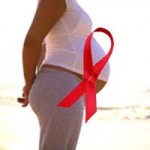 Pregnant women who are unaware that they have HIV miss the chance for drug treatment that can benefit not only their own health, but could also prevent them from transmitting the virus to their infants. When HIV is not diagnosed until women go into labor, their infants are usually treated soon after birth with the anti HIV drug zidovudine (ZDV), to prevent the infants from becoming infected with the virus.
Pregnant women who are unaware that they have HIV miss the chance for drug treatment that can benefit not only their own health, but could also prevent them from transmitting the virus to their infants. When HIV is not diagnosed until women go into labor, their infants are usually treated soon after birth with the anti HIV drug zidovudine (ZDV), to prevent the infants from becoming infected with the virus.
Now, a National Institutes of Health study has found that adding one or two drugs to the standard ZDV treatment can reduce the chances by more than 50 percent that an infant will develop an HIV infection.
The study results were presented at the Conference on Retroviruses and Opportunistic Infections, in Boston. The study was conducted at research hospitals in Brazil, South Africa, Argentina, and the United States, under contract to the NIH’s Eunice Kennedy Shriver National Institute of Child Health and Human Development (NICHD).
An estimated one fifth of people in the United States who have HIV are unaware that they harbor the virus. From 100 to 200 infants are born with HIV in the United States each year, many to women who either were not tested in early pregnancy or who did not receive treatment during pregnancy. Internationally, estimates of HIV testing vary, with only 21 percent of pregnant women in low and middle income countries having been tested for HIV during pregnancy.
"To reduce mother-to-child HIV transmission, it's best to begin antiretroviral treatment during pregnancy," said Heather Watts, M.D., a medical officer in NICHD and an author of the study. "However, when treatment during pregnancy isn’t possible, our results show that adding one or two drugs to the current regimen provides another important means to reduce the chance for mother-to-child HIV transmission."
At the 19 participating research sites, the NICHD/ HIV Prevention Trials Network 040 study evaluated 1,684 infants born to women whose HIV infections were not diagnosed until they were in labor. The infants were randomly assigned to three groups: those receiving the standard 6 weeks of therapy with ZDV, those receiving 6 weeks of ZDV plus 3 doses of nevirapine (NVP) during the first week of life, and those receiving 6 weeks of ZDV plus two weeks of lamivudine (3TC) and nelfinavir (NFV). The study results showed that treatment with the two and three drug regimens reduced HIV transmission by more than 50 percent.
"Our results showed conclusively that the two and three drug regimens are superior to the standard treatment with zidovudine," said study chair Karin Nielsen-Saines, M.D., clinical professor of pediatrics at the David Geffen School of Medicine at the University of California at Los Angeles.
To read the entire NIH press release, click HERE.

Comments